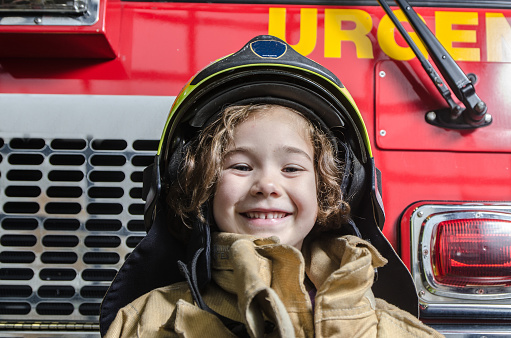Despite your best prevention efforts, a house fire may still occur. At the first sign of smoke or fire, you must act quickly and calmly because you may have very little time to gather your family members and safely evacuate. But by planning and practicing your escape plan, you can increase your family’s preparedness.
Plan Two Ways Out of Every Room
If a fire or smoke blocks your primary exit, you’ll need a second way out. Evaluate each escape route for ease of access. To help ensure a safe escape, take the following precautions:
- Eliminate clutter on stairs and in hallways.
- Make sure windows open easily and aren’t blocked or painted shut.
- Check to see if window security bars have quick-release mechanisms on the inside that everyone can operate. These security mechanisms will help you escape in the event of a fire without compromising your security from burglars or intruders.
- Ensure locked doors are easy to open from the inside.
- Keep keys to deadbolts accessible and near the door.
Consider locating the sleeping quarters of those with mobility concerns on the ground floor to help make their evacuation easier.
When in a high-rise building, always check what the emergency escape plan is. A diagram should be posted in every hallway along with clearly marked exits. If a fire does break out, it may be safer to “defend in place” as opposed to trying to evacuate. If this is the case, call 911 immediately and report the fire and your location inside the building.
Keep flashlights and reflective material in each room to signal firefighters from your window.
Establish a Meeting Place Outside
Choose one location (away from the house) where everyone will meet after escaping. This will allow you to quickly account for each household member. Once you’ve escaped:
- Don’t allow anyone to go back into the building for any reason, even for pets.
- Notify firefighters immediately if anyone is missing.
Know Your Emergency Number
Teach everyone in your home how and when to use 911. Instruct children that 911 is the only number they should call when there’s an emergency. Once you escape and report to your meeting place, have one family member call 911 from a neighbor’s home or cell phone. Don’t attempt to call 911 from inside your home during a house fire. You should use every second possible to escape.
Practice, Practice, Practice
Practicing your house fire evacuation plan can help your family feel more confident if a fire occurs. Follow these guidelines for plan practice:
- Schedule fire drills at least twice a year and make sure that everyone participates.
- Practice the fire evacuation plan at night.
- Practice feeling your way out of the house with your eyes closed to simulate escaping through smoke and darkness.
- Revise your house fire evacuation plan when a family member has a change in their health status, or when there’s a temporary or permanent change to your household.
Put It in Writing
- Write down your evacuation plan and share it with everyone.
- Draw a floor plan and mark primary and alternate escape routes from each room.
- Show the meeting location outside your home.
- Post the floor plan near your phone where babysitters, visitors and overnight guests can see it.
Take Special Care of Children
Fire injuries and deaths among children often occur because they become frightened and try to hide from the blaze. A prepared child is more likely to escape unharmed. Talk to children about what to expect if a fire occurs and practice the house fire evacuation plan with any child who stays at your house.
The Right Equipment for a Home Fire Emergency
Make sure you have working fire extinguishers and consider upgrading your home’s fire protection by adding improvements such as an internal sprinkler system. Recent studies show that the installation of smoke alarms and automatic sprinkler systems saves thousands of lives each year and can help protect against property loss.
House fire safety comes down to preventing, planning and practicing. Yet even by following the best home fire prevention strategies, accidents can happen—so it’s best to be prepared. Although fire safety is serious, you can make it easy to talk about. Visit thehartford.com/JFMParent to learn more.
Information and links from this article are provided for your convenience only. Neither references to third parties nor the provision of any link imply an endorsement or association between The Hartford and the third party or non-Hartford site, respectively. The Hartford is not responsible for and makes no representation or warranty regarding the contents, completeness or accuracy or security of any material within this article or on such sites. Your use of information and access to such non-Hartford sites is at your own risk.





